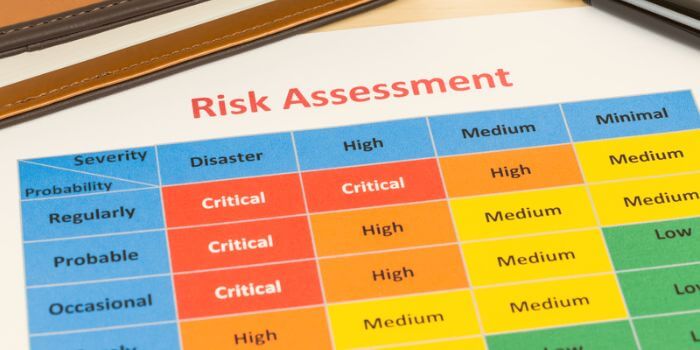Unveiling the Value: The Benefits of Conducting Risk Assessments Beyond Compliance

In today’s business landscape, risk assessment is often viewed as a regulatory requirement, necessary to comply with industry standards and legal obligations. However, the benefits of conducting risk assessments extend far beyond mere compliance. Delve Deeper: Exploring the Value of Risk Assessments Beyond Regulatory Demands.
Enhanced Decision-Making: Gaining Insights for Strategic Planning
One of the primary benefits of conducting risk assessments is the wealth of insights it provides for strategic planning and decision-making. Strategic Insights: Leveraging Risk Assessments for Informed Decision-Making. By identifying potential risks and vulnerabilities, businesses can anticipate challenges and proactively develop strategies to mitigate them. This proactive approach enables organizations to make informed decisions that align with their long-term objectives, ultimately enhancing their competitive advantage in the marketplace.
Risk Mitigation: Minimizing Losses and Maximizing Opportunities
Another significant benefit of conducting risk assessments is the opportunity to mitigate potential losses and capitalize on emerging opportunities. Navigating Uncertainty: Mitigating Risks and Seizing Opportunities. By identifying and prioritizing risks, businesses can allocate resources more effectively to address areas of vulnerability. Additionally, risk assessments enable organizations to identify opportunities for growth and innovation, allowing them to capitalize on market trends and gain a competitive edge.
Stakeholder Confidence: Building Trust and Credibility
Conducting comprehensive risk assessments demonstrates a commitment to transparency and accountability, thereby building trust and credibility with stakeholders. Building Trust: Enhancing Stakeholder Confidence Through Robust Risk Assessments. Whether it’s investors, customers, or regulatory bodies, stakeholders value organizations that take a proactive approach to risk management. By conducting thorough risk assessments and implementing appropriate controls, businesses can instill confidence in their stakeholders and enhance their reputation in the marketplace.
Cost Savings: Preventing Financial Losses and Legal Penalties
Effective risk management can lead to significant cost savings by preventing financial losses and legal penalties associated with non-compliance. Protecting the Bottom Line: The Cost-Saving Benefits of Risk Assessments. By identifying and addressing potential risks before they escalate, businesses can avoid costly disruptions to their operations and safeguard their financial assets. Additionally, conducting risk assessments can help organizations avoid regulatory fines and penalties, further reducing their exposure to financial risk.
Continuous Improvement: Driving Organizational Resilience and Adaptability
Finally, conducting risk assessments fosters a culture of continuous improvement within organizations, driving resilience and adaptability in the face of uncertainty. Fostering Resilience: Driving Continuous Improvement Through Risk Assessments. By regularly assessing and reassessing their risk landscape, businesses can identify areas for improvement and implement proactive measures to strengthen their resilience. This iterative approach ensures that organizations remain agile and responsive to changing market conditions, positioning them for long-term success and sustainability.
In summary, the benefits of conducting risk assessments extend far beyond compliance requirements, offering valuable insights for strategic decision-making, risk mitigation, stakeholder confidence, cost savings, and organizational resilience. By embracing risk assessment as a proactive tool for driving business excellence, organizations can unlock new opportunities and thrive in an ever-changing world.





